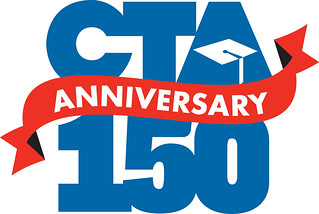By CTA President Dean E. Vogel
Labor Day is the one day of the year when we celebrate the historical achievements of the labor movement and honor those who contributed to the social and economic achievement of workers and the middle class. For me, though, this Labor Day is not only a chance to acknowledge what the labor movement has done in the past, but to reflect on what it can do in the present.
Last year at this time, teachers, firefighters, nurses and public servants came together to do something that had been unthinkable for 20 years. We persuaded voters to pass Proposition 30, a temporary tax increase to prevent drastic budget cuts to students and public schools and to keep our economy strong.
That vote was no fluke, because in the same election, voters also rejected Proposition 32, a third try at a ballot proposal that would have silenced middle-class workers and immobilized unions while strengthening the power of billionaire businessmen.
Working families may not have the billions of dollars and deep pockets of big tobacco, oil companies or Wall Street brokers, but last November, we showed that Californians want to invest in public education, their communities and their future. They want to see our economy restored so that more can work their way into the middle class, not fall out of it.
As an educator I know that reinvesting in our state means reinvesting in the education of our students. I’ve seen on a personal level what a quality public education can do. As the son of a farmhand and a waitress who moved around the state a lot, I was able to make that leap into the Middle Class because I had access to a quality education. I’ve seen that happen to the students whom I’ve taught as well.
This state’s prosperity goes hand-in-hand with the guarantee of free quality education for every student, and in 2013 that includes the children of immigrants. In fact, it has always included children of immigrants. California, after all, is a state built by immigrants. Providing all students equal access to quality public schools and colleges is why the California Teachers Association supports a pathway to citizenship for children of immigrants – the “Dreamers.” It would be disingenuous not to.
CTA’s commitment to the principle of educating all children goes back to our founding 150 years ago by John Swett, California’s fourth superintendent of public instruction. When leaving office in 1867, Swett said, “If one state in the union needs a system of free schools more than any other, that state is California. Her population is drawn from all nations… Nothing can Americanize these chaotic elements and breathe into them the spirit of our institutions but the public schools.” How prophetic was that?
One can look at Proposition 30 solely as a temporary tax increase, but I see it as so much more. The passage of Prop. 30 opens the door, at least a little, to the possibility of restoring California’s great middle class and expanding it to a new generation, of renewing our commitment to tax fairness and of taking a step toward achieving economic justice for all.
Dean Vogel is president of the 325,000-member California Teachers Association.

